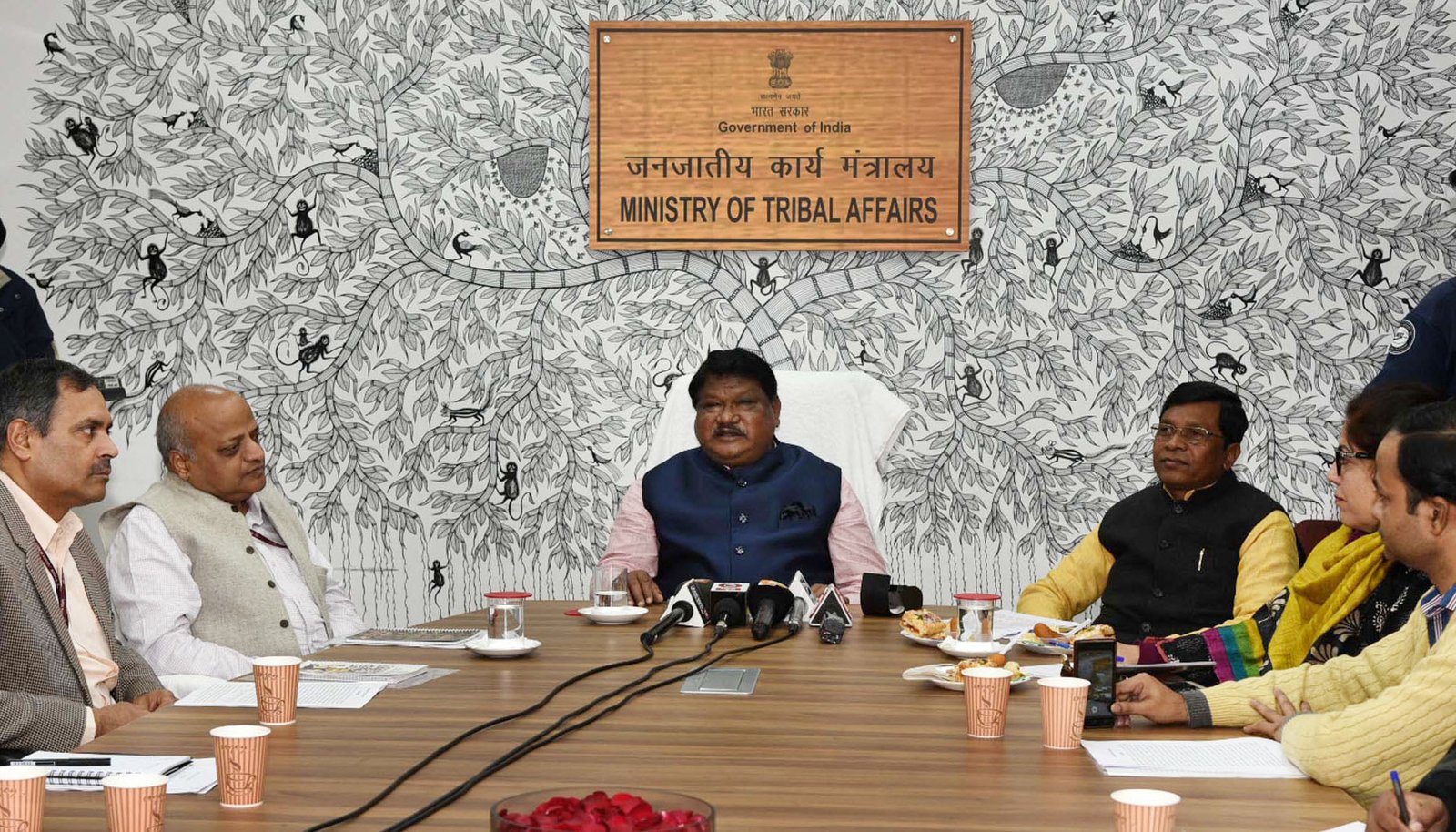
New Delhi: December 20: Every block with more than 50% ST population and at least 20,000 tribal persons, will have an Eklavya Model Residential School (EMRS) by the year 2022. Addressing media persons here today, the Union Minister for Tribal Affairs Jual Oram said that consequent upon Budget announcement for 2018-19, Cabinet Committee on Economic Affairs, in its meeting held on 17th December, 2018, has decided that by the year 2022, every block with more than 50% ST population and at least 20,000 tribal persons, will have an Eklavya Model Residential School. Eklavya schools will be on par with Navodaya Vidyalayas and will have special facilities for preserving local art and culture besides providing training in sports and skill development. Across the country, as per census 2011 figures, there are 564 sub-districts i.e. blocks/taluka/tehsil having more than 50% ST population and at least 20,000 tribal persons. Out of these sub-districts, at present 102 sub-districts have EMRSs.
He informed the media persons that it is proposed to establish new EMRSs in the remaining 462 sub-districts by the year 2022.
The Minister said that the proposed scale up of the initiative through enhanced recurring and non-recurring cost is a path breaking initiative. This will immensely help in reducing gaps in literacy between ST population vis-à-vis overall population. The focus is on academic excellence through this up scaled initiative and will lead to holistic development of tribal children.



























